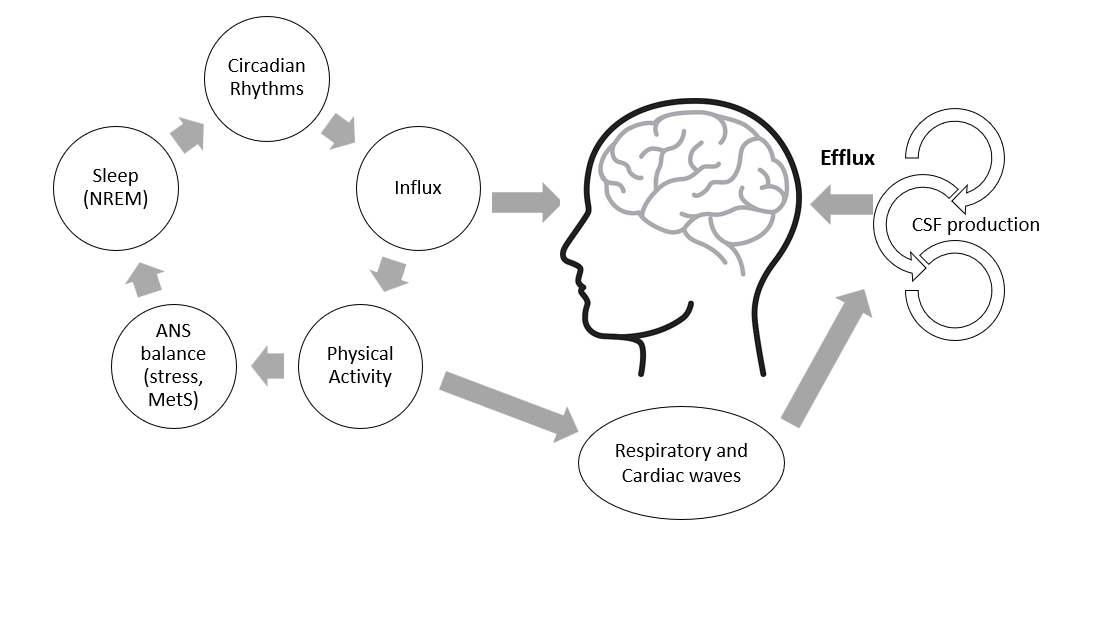Our recent publication highlights the Effect of Lifestyle Choices on Cerebrospinal Fluid Pulsations.
This research extends our work linking lifestyle choices with (a) chronic disease risk, (b) immune system imbalance risk, and (c) mental health issues-related risk. The article highlights the importance of enhancing autonomic function through slow breathing (for example, research we have done on Bhramari and self-hypnosis gets additional backing through the findings of this review article). Several examples of the role of circadian rhythms and the need to align our lives to that rhythm are also provided.
Abstract:
Cerebrospinal fluid (CSF) flow plays a critical role in clearing metabolic waste from the brain. The flow depends on several factors, including cardiac and respiratory oscillations. The process of CSF pulsations also follows a circadian pattern and plays a central role in maintaining the homeostasis of the brain and the central nervous system (CNS). Any disruption to this flow triggers a homeostatic imbalance in the CNS and could increase the risk of several chronic conditions, including Alzheimer’s disease. This commentary highlights recent research to articulate the importance of CSF flow and provides insights into the drivers of the CSF flow. Based on the evidence, the relative importance of respiratory pulsations’ role in CSF flow is highlighted. Specifically, the role of slow breathing and sleep quality and a perspective on the implications for lifestyle choices and future research are highlighted.







Leave A Comment